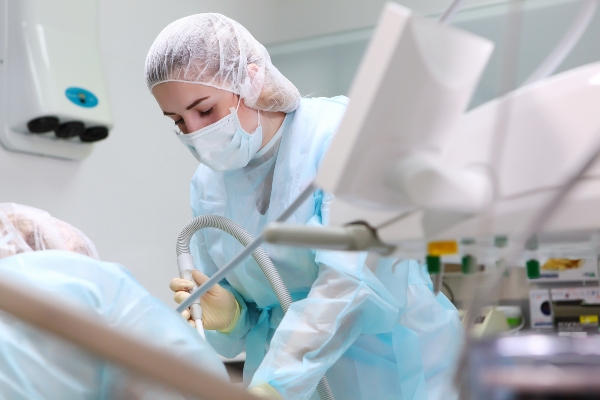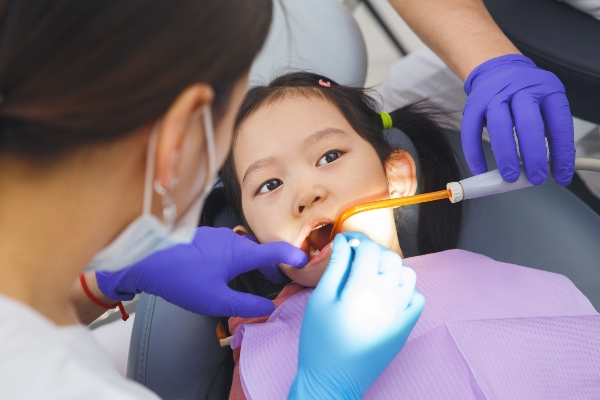Pediatric Dentistry: What Foods Your Child Should Avoid
 Pediatric dentistry professionals always warn against foods that can ruin a child’s teeth. Parents must limit a child’s intake of carbohydrate-rich foods. This can help lower the child’s risk for dental problems. Knowing what foods to avoid can help make oral care easier. If you want to know what foods can harm your child’s teeth and gums, here are the details from a pediatric dentistry professional.
Pediatric dentistry professionals always warn against foods that can ruin a child’s teeth. Parents must limit a child’s intake of carbohydrate-rich foods. This can help lower the child’s risk for dental problems. Knowing what foods to avoid can help make oral care easier. If you want to know what foods can harm your child’s teeth and gums, here are the details from a pediatric dentistry professional.
The concern for cavities
Pediatric dentistry stresses that tooth decay can damage the enamel permanently. Many factors contribute to cavity formation, but the main cause of this dental problem is the consumption of carbohydrate-rich foods. Bacteria feed on sweets. Without pediatric dentistry treatments, decay can penetrate the inner structures of teeth and do more harm.
Improper hygiene encourages these microbes to reproduce more. This then leads to enamel erosion. Without treatment, cavities lead to pain and discomfort. It could also lead to tooth loss. Cavities start as tiny holes in the teeth. Pediatric dentistry stresses that the damage may also start at the gumline.
The foods to avoid
Cavity prevention starts in the home. This means stocking the pantry and fridge with sugary snacks is not the way to go. The grocery list must not have these foods in the first place. Choosing healthy snacks should be the trend in the home. This can help the kids become more aware of oral health. Below are some of the foods to be avoided for cavity prevention:
- Chips and crackers may not be sweet, but these foods are packed with carbohydrates. The enzymes in the saliva break them down into simple sugars. Particles of crackers and chips can stick to the gums for hours.
- Chewy candies can start to decay right away once the sugars in them stick to the enamel. Extended periods of eating these sweets can help bacteria thrive and plaque accumulate. Sugar-coated chewy candies cause even more damage.
- Energy drinks may quench one’s thirst, but these are not healthy supplements. Sugar is the main source of energy in these drinks. There is also acid that erodes the enamel as well.
- Pickled foods contain acids and sugars. The fermentation process may be good for the health, but the acids and sugars are not good for the teeth.
- Dark sodas contain corn syrup. Since these are liquid sweets, they can coat teeth easily. Cavities can form on any side of the tooth, even underneath the gums.
- Ice is hardened water. It may not be sweet, but chewing on it can damage teeth. Ice is dense and solid. Pediatric dentistry professionals say that biting and chewing ice can lead to fractures and cracks. It can even chip off parts of the teeth. The damage can result in openings for bacteria.
- Black tea can be a good coffee alternative, but it can be harmful to teeth. The high levels of tannin in black tea can result in dental staining.
- Popcorn may be an all-natural snack. It is even more delicious with butter and salt, but the corn casings can lodge between teeth and in the gumline.
- Dried fruits may sound healthy because of the nutrients in them. But these foods are sticky and have high levels of sugar.
- Citrus fruits may contain vitamin C, but the acids in these fruits can erode the teeth.
Pediatric dentistry stresses that knowing what foods to avoid can help maintain your child’s healthy teeth
Children are fond of eating sweets. Unfortunately, their dental health pays the price. As a responsible parent, you can help your child make the right dietary choices. Pediatric dentistry treatment and staying away from foods that harm teeth can result in better self-esteem and better quality of life.
Request an appointment or call Hudson Valley Pediatric Dentistry at 845-363-4177 for an appointment in our Middletown office.
Recent Posts
A child dentist can help your child achieve better dental and general health. Regular visits allow your child to get used to dental checks, tools, and equipment. Dental fear disappears, and the young patient can continue having a bright, painless smile. Here are what parents like you should look forward to during child dentist appointments.Choosing…
Cavity treatment for kids is essential for a child’s oral health. Dental decay can cause discomfort, causing the child to lose focus at school. It can even result in low self-esteem and malnutrition. Treating cavities can improve your child’s general health. Here are effective techniques for cavity treatment for kids.There are cases when fillings cannot…
Parents play a crucial role in their children's tooth care by ensuring their children get started on the right path to optimal dental health. This involves overseeing children's tooth care at home while also helping them develop healthy dental habits and ensuring they see a pediatric dentist regularly.Parents will need to keep their child's mouth…


